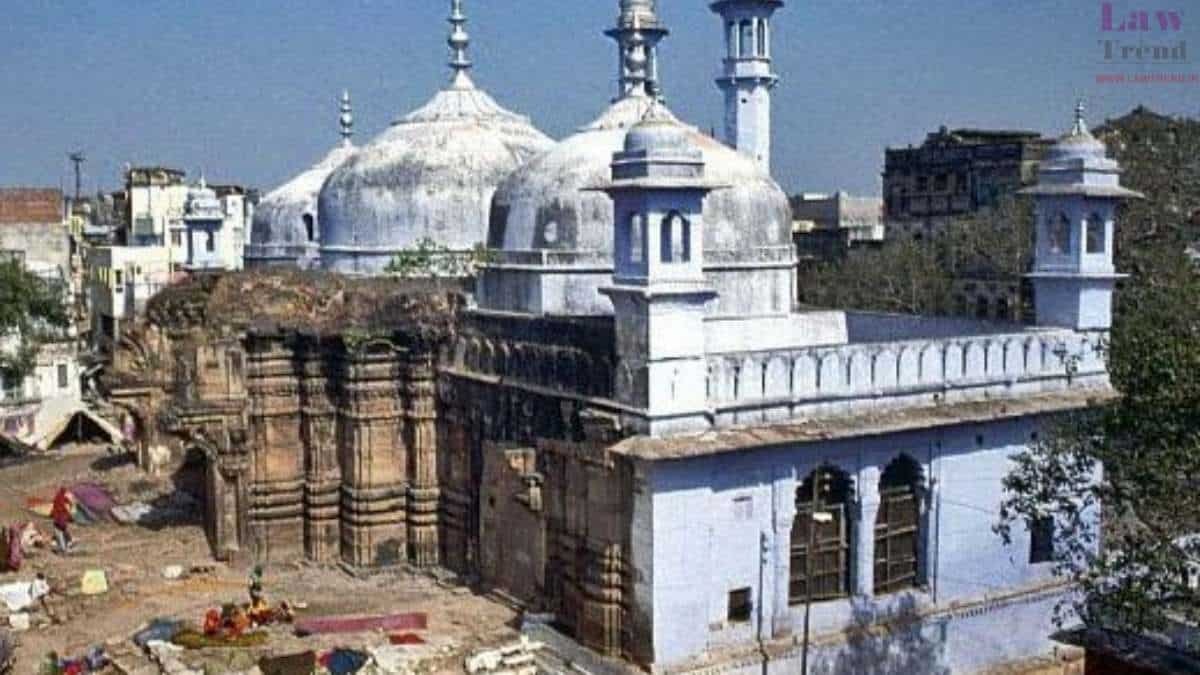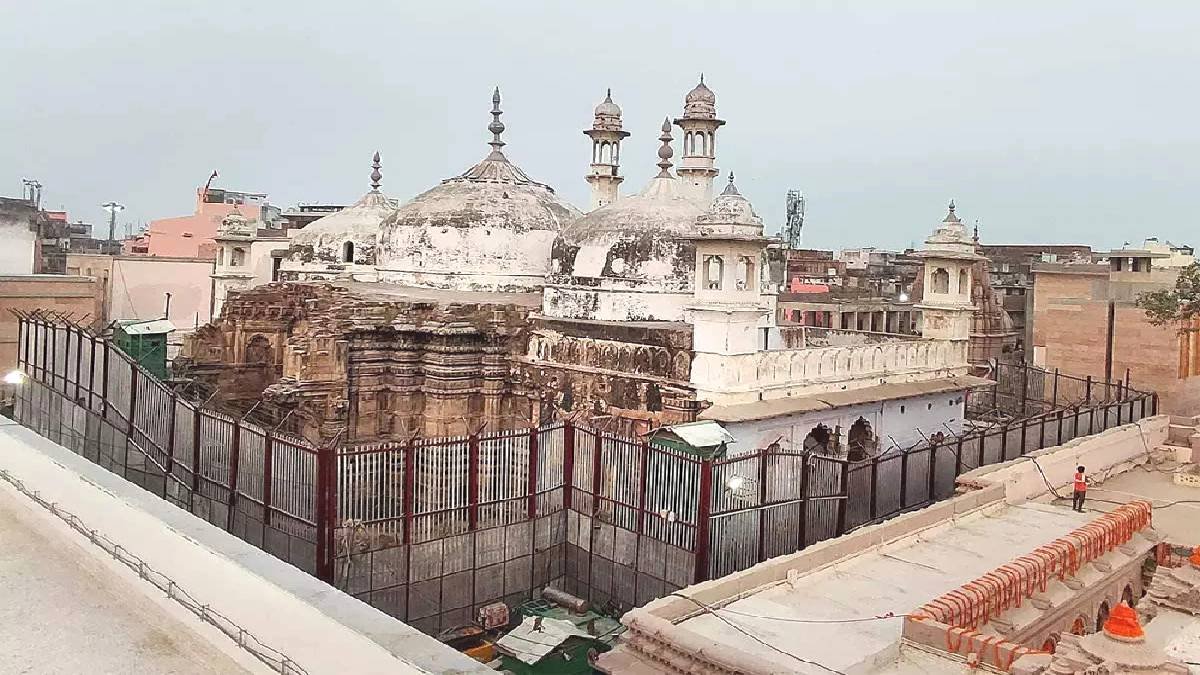NEW DELHI, July 24 (PTI): In a relief to the Gyanvapi committee, the Supreme Court on Monday halted till 5 pm on July 26 a “detailed scientific survey” of the ASI to determine if the mosque located next to the Kashi Vishwanath temple in Varanasi was built upon a temple, saying “some breathing time” needed to be granted to appeal against the order.
Taking up the plea moved by Anjuman Intezamia Masjid (AIM) of the Gyanvapi mosque for an urgent hearing, the top court directed the Allahabad High Court to hear the appeal before its “status quo” order expires on Wednesday evening.
The apex court’s order came at a time when a 30-member team of the Archaeological Survey of India (ASI) was inside the mosque complex to carry out the survey.
A Varanasi court directed the ASI on Friday to conduct the survey — including excavations, wherever necessary — to determine if the mosque was built at a place where a temple existed earlier.
“We permit the petitioners to move the high court in the exercise of its jurisdiction under Article 227 of the Constitution or the appropriate proceedings to challenge the order of the learned district judge of Varanasi. Having regard to the fact that the order of the district court was pronounced at 4.30 pm on July 21 and the survey is in the process of being carried out, we are of the view that some breathing time should be granted to the petitioners to move the high court, seeking appropriate reliefs.
“We direct that the impugned order of the district judge shall not be enforced till 5 pm on July 26. In the meantime, should petitioners move the high court with the petition or application under Article 227, the registrar-judicial shall ensure that it is placed before an appropriate bench according to the roster of work so that it can be heard before the order of the status quo, which has been granted by this court, comes to an end,” ordered a bench comprising Chief Justice D Y Chandrachud and Justices J B Pardiwala and Manoj Misra.
The bench directed Solicitor General Tushar Mehta, who appeared in the court on behalf of the Uttar Pradesh government, to immediately convey the order to the ASI officials working at the site.
At the outset of the day’s proceedings, the plea was mentioned by senior advocate Huzefa Ahmadi, who was representing the mosque committee, for an immediate stay of the ASI work, saying that the task has been undertaken in a “tearing hurry”, without affording the time to the aggrieved party to file an appeal.
The bench, which initially suggested that the mosque panel should move the high court, subsequently decided to take up the plea for hearing during the day and sought information from the solicitor general about the status of work being carried out by the ASI.
It clarified that no invasive or excavation work should be carried out at the site.
The law officer took instructions and informed the bench that the ASI is conducting photography and radar-imaging at the site and presently, no invasive or excavation work is underway.
The mosque’s “wazookhana” (a small reservoir for Muslim devotees to perform ritual ablutions before offering namaz), where a structure claimed by the Hindu litigants to be a “Shivling” exists, will not be a part of the survey, following an earlier Supreme Court order protecting that spot in the complex.
District Judge A K Vishvesh has directed the ASI to submit a report to the court by August 4, along with video clips and photographs of the survey proceedings.
Ahmadi told the court that an order was passed directing the ASI survey of the entire area, “which, as per us, is in teeth of the Supreme Court order”.
“Why don’t you withdraw this and move the Allahabad High Court?” the bench asked Ahmadi.
The senior lawyer said the ASI has started the survey, disregarding the mosque panel’s request that the work be stopped for some time as the apex court is seized of the matter. Referring to the district court’s order, Ahmadi said they will excavate the site as the ASI has been directed to conduct a GPR survey and other scientific assessments.
“On the last date of the hearing, it was the question of carbon-dating of the ‘Shivling’ and I had said that it would be an invasive method. This is a non-invasive method of conducting the survey,” the solicitor general said.
The court then suggested passing an order, saying let there be no excavation work at the site for a week and the mosque committee can go to the high court in the meantime.
Earlier, the Supreme Court had ordered the protection of the area around the “Shivling” that was found when another court had ordered a video survey of the Gyanvapi mosque complex.
The mosque management maintains that the structure is part of the water fountain mechanism at the “wazookhana”.











